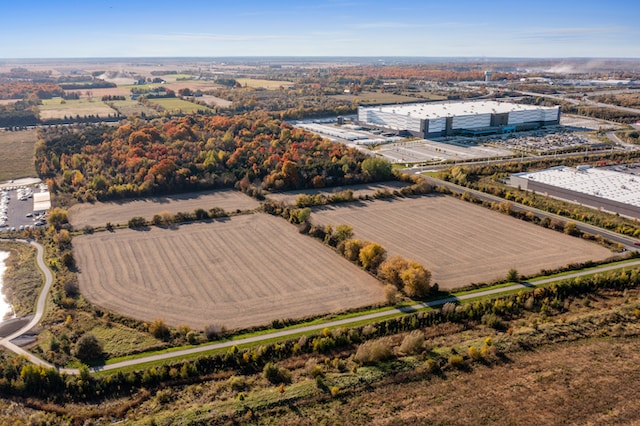Land acquisition is a critical aspect of real estate development. It requires thorough research and evaluation to ensure the property is suitable for its intended use. It also involves negotiating with current landowners and stakeholders.
As financing for multifamily deals is working its way back toward pre-recession levels, some developers are pursuing strategic land buys in core markets. Here are some tips for navigating this process successfully:
Conduct thorough research
Raw land is a valuable commodity for home developers. Identifying raw land with development potential is one of the most crucial parts of the vacant land acquisition process. Conduct extensive research, including market trends and zoning regulations, is essential. Understanding the cost and timeline of bringing raw land to market is also critical.
While each land appropriation story has unique characteristics, common elements include a small number of beneficiaries and many dispossessed, using armed force vastly superior to the strength of those displaced, exploitation, and dispossession of non-commercial labor. The current wave of appropriation is particularly distinctive in its global scope, the context of public policy liberalization, the decisive role of governments, and legitimizing discourse.
One example is the government’s purchase of coastal floodplain land to protect native habitats and ecosystems. This has co-benefits, such as improved water quality and access to recreational opportunities. However, this strategy has risks, especially if the government fails to manage or maintain the property after it is acquired.
Engage in effective negotiation
Land acquisitions Niceville FL, are complex and require a high level of expertise. This may include understanding the zoning regulations and environmental considerations associated with the property. It may also involve negotiating with the owner or landowners to ensure they are compensated fairly for their property.
Effective negotiation is critical to successful land acquisitions. A skilled negotiator will be able to communicate the project’s benefits to the landowner and find ways to work around potential obstacles.
It is also essential to stay updated on the latest laws and regulations related to land acquisition. This will help to avoid legal complications down the road. For example, if the goal is to acquire land for flood mitigation purposes, there may be specific requirements for ecological protection. In this case, engaging in a comprehensive environmental impact assessment and developing appropriate mitigation measures would be beneficial. It’s also essential to consider any social impacts that could occur during the land acquisition process.
Build a strong network
When buying raw land, you should identify parcels with potential development potential. That will require much research, but it may also mean reaching out to various people, including builders and real estate professionals.
Your personal and professional networks will be essential for locating opportunities. Let them know you want to buy land and ask for referrals. This could include attorneys, accountants, engineers, land planners, consultants, city staff, and officials.
The primary co-benefit of this strategy is ecological protection—the acquisition and preservation of natural coastal habitats like beaches, vegetated dunes, wetlands, barrier islands, or mangrove forests. These areas provide natural flood protection and offer recreational opportunities for the community. Ideally, you’ll be able to preserve these areas on a larger scale, which is more likely to reduce their vulnerability and the impact of flooding. This will likely require acquiring tens or hundreds of acres of land.
Develop a clear strategy
Land acquisition is an essential tool for municipalities to protect sensitive areas. However, the process can be complex and requires substantial political will and community support. This is especially true when it comes to purchasing raw land for development.
Using land to mitigate flood impacts is most effective on a large scale and may require acquiring or protecting tens to hundreds of acres. Natural coastal features that can help save a community from flooding include beaches, vegetated dunes, barrier islands, coastal wetlands, and mangroves.
While the current wave of large-scale land acquisitions differs from past ones, it shares many characteristics, including global scale, a small number of beneficiaries, the exploitation of land and labor by these beneficiaries, dispossessed populations, laws favoring acquisitions, and legitimizing discourse. As a result, it is crucial to develop a clear strategy before engaging in effective negotiation. The best way to do this is to create a roadmap of objectives and steps.




